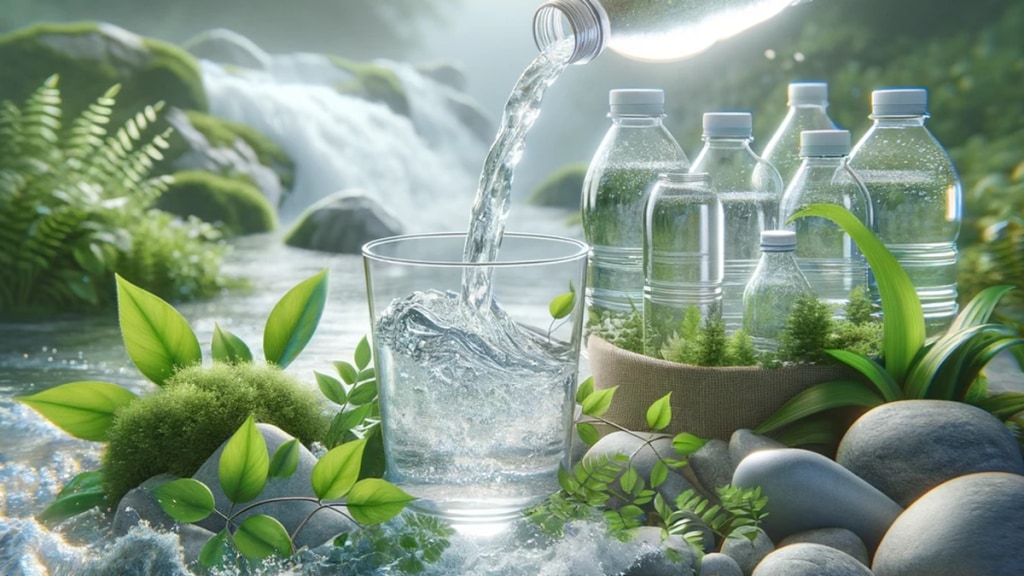At a time when the world is increasingly looking for sustainable alternatives to everything, here’s a startup aiming to reshape the potable water landscape in India. Delhi-based Responsible Whatr founded by Ankur Chawla and Bhrigu Seth offers natural spring water, sourced from Solan, Himachal Pradesh, not in transparent plastic bottles but in aluminium cans which the startup claims are endlessly recyclable.
From hospitality roots to sustainability goals
The genesis of the idea to sell canned water dates to 2018 when Chawla, a seasoned hospitality professional and certified sommelier, was looking for entrepreneurial avenues after his 12-year stint with Marriott Hotels.
A conversation around that time with Seth about the pristine water sources in Solan sparked curiosity about the water’s purity. Laboratory tests of the water by Chawla and Seth later confirmed what they suspected— ideal TDS level, natural mineral richness, and a pH value between 7.4 and 7.8.
“This quality rivalled some of the best spring waters in the world,” Chawla told FE Online. But beyond purity, the co-founders saw an opportunity to tackle a growing problem—plastic pollution.
Rethinking water packaging
While the hospitality sector was shifting to glass bottles as a substitute for plastic, Chawla knew from his operational experience that glass had its limitations—fragility, high cost, and surprisingly, poor sustainability credentials due to its carbon-intensive production and low recyclability rates in India.
This led him to an unconventional solution: aluminium cans. “Cans already made up of 76 per cent recycled aluminium and capable of being infinitely recyclable without quality loss made a compelling case,” he explained. If colas and beers could be canned, why not water?
The idea initially seemed radical. “We put stickers on beer cans, presented them to hospitality friends, and asked if they would buy water like this. The feedback was overwhelmingly positive,” Chawla recalled.
This led to Responsible Whatr — a name that conveyed the ethos Chawla wanted to focus on. From sustainable packaging to rainwater harvesting and local hiring at the plant, the brand aimed at embedding responsibility at all these levels. Even their aluminium scrap is routed back into the recycling chain.
Sold in 250 ml and 500 ml sizes for Rs 45 and Rs 75 respectively, the startup has set up its bottling facility in Solan, allowing them to keep a tight control on water and can quality. “Every can is batch-tested, and we don’t compromise—even a minor scratch on the can means it’s discarded,” said Chawla.
Navigating market challenges
As a category-first product in India, Chawla’s canned water initially faced scepticism, especially with customers used to transparent plastic bottles. “Many people associate a can with a carbonated drink. We had to educate them that what’s inside is premium natural spring water, akin to Evian or Himalayan—not Bisleri,” he said.
COVID-19 also posed a major challenge right after the first production run, stalling momentum for Chawla for nearly two years. “We didn’t come from manufacturing backgrounds, and setting up the plant was a steep learning curve,” added Chawla. Still, the team persisted.
Despite initial setbacks, Responsible Whatr said it has managed impressive growth—2x and 3x revenue jumps in successive years. In FY24, Chawla said the company achieved 18 per cent PAT (profit after tax), a not-so-very-common feat for a startup in the sustainable consumer goods space.
Their biggest validation came when Responsible Whatr was selected to serve water at the G20 meetings—a moment for the founders and a nod to the brand’s positioning. Currently, it largely serves the HoReCa (hotel, restaurant, catering) market with ITC Hotels among its major customers.
Bootstrapped till now
While Responsible Whatr has been bootstrapped so far, Chawla admitted that future expansion will require capital infusion. “Not just for funds‘ sake, but for the right synergy. The goal is sustainable growth, not vanity valuations.”
Currently, the brand supplies in over 28 cities, with Delhi NCR being the largest market. The company is also eyeing exports to the Middle East, Maldives, Singapore, and Hong Kong, where the response has been encouraging.
Chawls said his vision extends beyond water. “We want to become a beverage company, not just a water company,” hinting at product diversification soon.
As the company looks to expand its footprint across domestic and international markets, it continues to explore ways to scale operations while staying aligned with its sustainability goals. In a segment still dominated by plastic packaging, the company said it is slowly finding traction among a niche set of environmentally conscious consumers.
Whether that shift gains broader acceptance remains to be seen, but for now, Responsible Whatr is part of a small movement challenging long-standing norms in the packaged water industry.
